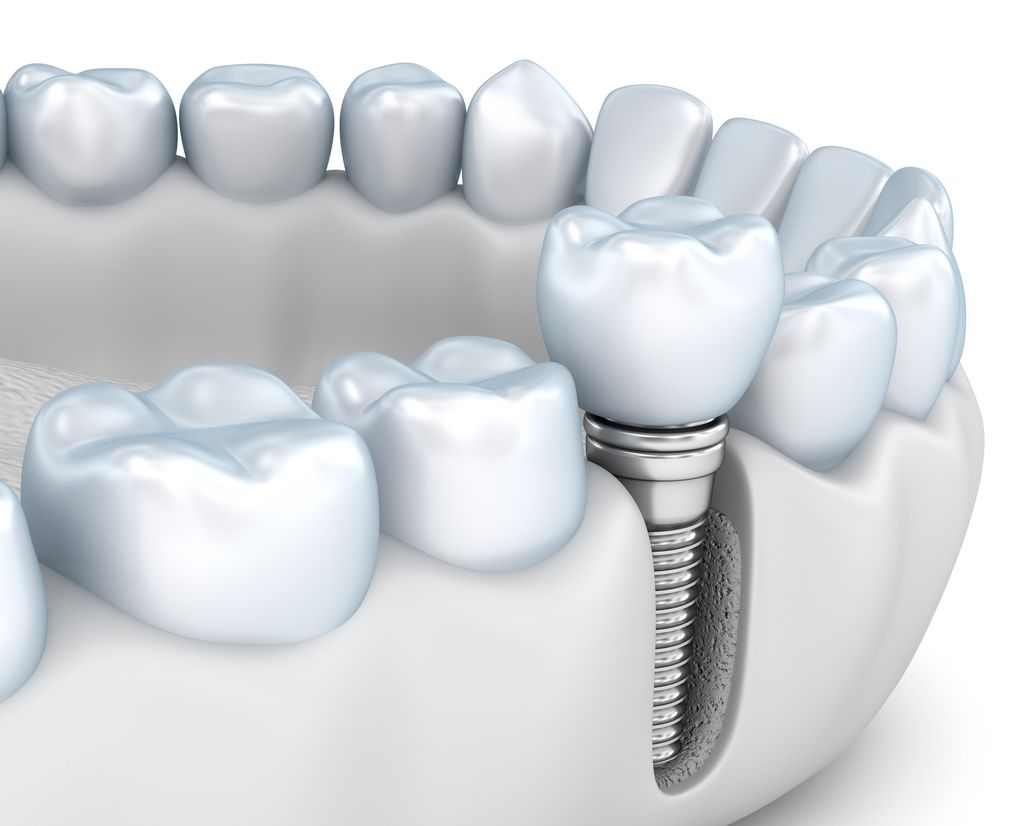Tooth loss can occur suddenly after an accident or as a result of a serious dental condition. In either case, you might struggle with your usual oral functions if you have missing teeth. And gaps in your smile may leave you with a blow to your self-esteem.
Many people do not realize that missing teeth may mean you suffer from further oral health problems as well. If you do not seek tooth replacement treatment from your dentist, you could see a deterioration in the health of your jawbone.
Your dentist can help you protect your jawbone if you lose one or more teeth when you schedule a restorative dental consultation. Learn details about how to protect the health of your jaw in the wake of tooth loss when you read on.

What Happens to the Jaw After Tooth Loss?
A healthy dental patient has a full set of teeth, and each tooth features a root that extends below the gumline to reach the jawbone. The presence of the tooth’s root stimulates the bone, keeping it vital and strong.
If a patient loses a tooth, the jaw will no longer receive stimulation. In the absence of the tooth’s root, the jawbone can start to deteriorate.
Bone loss in the jaw will look visible in the facial structure. You can see shrinkage in the face, and the skin around the jaw will start to sag. Plus, the remaining teeth will shift out of place, putting you in danger of further dental problems.
How Do Dental Implants Preserve the Jawbone?
You cannot stop the jawbone loss that can occur if you have missing teeth on your own. You will need a dentist to help you replace missing teeth, which should include the tooth root. For maximum restorative dental benefits, you will want to try implant dentistry.
The dental implant features a titanium post anchor that a dentist inserts into the jaw. The anchor fuses with the jawbone to provide a solid foundation for the prosthetic teeth. But the anchor also serves as a replacement for the missing tooth’s root.
The jaw can receive stimulation again, stopping it from degenerating. This will preserve your face shape while also allowing you to restore your smile’s aesthetics, health, and function.
Am I Eligible for Implant Dentistry?
Although the benefits of dental implants seem clear, not all patients will be eligible to receive this type of tooth replacement treatment. Implants rely on the successful fusion of the anchor with the jawbone. If you suffer too much bone loss due to missing teeth, then you cannot support the implant.
A dentist will evaluate your jawbone structure through x-ray imaging to ensure you have enough healthy bone and tissue to sustain an implant. Your dentist might suggest a bone graft to add stability to a weak jaw that can support an implant after your recovery. Learn more about the advantages of dental implants as the implant procedure when you give your dentist a call.
What are the visible signs of jawbone loss in the face?
Visible signs of jawbone loss often include a sunken or collapsed appearance around the cheeks and mouth. You might also notice sagging skin, deeper wrinkles near the mouth, or a shorter-looking lower face. These changes occur because the bone no longer supports the facial structure as it once did. Over time, this can make someone look older than they are.
Does jawbone deterioration cause pain or discomfort?
Jawbone loss doesn’t always cause pain at first, but over time, it can lead to discomfort in the jaw, shifting teeth, or bite changes. As the bone shrinks, dentures may not fit properly, causing soreness or pressure spots. If the deterioration progresses, it can also lead to jaw stiffness or joint issues. Regular dental checkups help catch bone loss before symptoms worsen.
How does missing even one tooth affect the rest of your bite?
When a tooth is lost, the surrounding teeth often shift into the empty space. This can throw off your bite, make chewing uneven, and even strain the jaw joint. Over time, it may cause wear on other teeth or increase the risk of further tooth loss. Replacing a missing tooth early helps maintain proper bite alignment and oral function.
Can jawbone loss affect your speech or chewing ability?
Yes, as the jawbone shrinks, it can change how your teeth align and how well your dentures or bridges fit. This affects how you pronounce words, making chewing more difficult or less efficient. In severe cases, it may limit the types of food you can comfortably eat. Bone support is essential for both clear speech and strong chewing.
Will missing teeth always lead to jawbone loss if untreated?
In most cases, yes – when a tooth is missing, the jawbone beneath it loses stimulation and starts to break down. This process, called resorption, can begin within a few months after tooth loss. The longer it goes untreated, the more bone volume is lost. Replacing teeth with dental implants is the best way to maintain bone health.
Can partial dentures or bridges help prevent jawbone deterioration?
Traditional partial dentures and bridges restore function and appearance but don’t prevent jawbone loss. They sit on the gums or anchor to adjacent teeth without stimulating the bone. Only implant-supported restorations actively maintain the jawbone by mimicking the pressure of natural tooth roots. If preserving bone is a priority, implants are the most effective solution.
